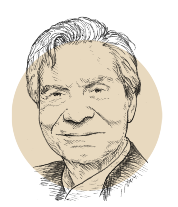French people will hardly be surprised by the divisive debate in the United States concerning the future of Confederate statues. After all, they experienced the same awkwardness with Marshal Pétain – although this was a more complex issue, as Philippe Pétain was both a glorified hero of World War I and the leader of the abominable Vichy government. In his first role, Pétain was praised and honored until 1940. The city of New York gave him a triumphant reception on October 26, 1931, and his heroic work earned him a plaque on Broadway. This ambiguity persisted even after World War II, and the then French president François Mitterrand continued to lay flowers on the tomb of the “hero of the Battle of Verdun” every year.
The far right is the sole group to continue upholding Pétain’s name in France today, and only because they follow the same nationalistic and xenophobic ideology as the Vichy regime. The mayor of New York has promised to remove the plaque honoring Pétain on Broadway, but what will become of the dozens of other references in the United States, such as “Pétain Street” and “Pétain Avenue”? (See text box at the end.) And what of Pierre Laval? The leader of the Vichy government’s Militia and the man behind the Vél d’Hiv Roundup also has a plaque on Broadway.
How are we to arbitrate and manage memories of a complex past? This question is partly answered by the fact that history is written by the victors; Pétain was beaten in 1945, and General Lee in 1865. Too bad for them and for their cause – morality triumphs. However, victory alone cannot determine commemorations; morality also has a role to play. The racism of the Confederates and the Vichy regime, now promoted by white supremacists in the United States and the Front National in France, continues to make Blacks and Jews suffer in both countries.
Removing references to Pétain and Lee is therefore not so much a revision of history as an attempt to protect those who may once again become victims of murderous ideologies. That being said, learning about history is not forbidden; rather, it is an essential solution to many a poisonous dispute. As for the statues, they can always be kept in museums. Moscow has one in particular, which serves as a home for the statues of Lenin and Stalin.
American Streets and Avenues Named after Marshal Pétain:
Pétain Street
Defiance, OH
Ellwood City, PA
Hartselle, AL
Manchester, NH
Monroe, LA
Prichard, AL
Pétain Avenue
Dallas, TX
Abbeville, LA
Milltown, NJ
Carmichaels, PA
Yuma, CO
Source: Google Maps












